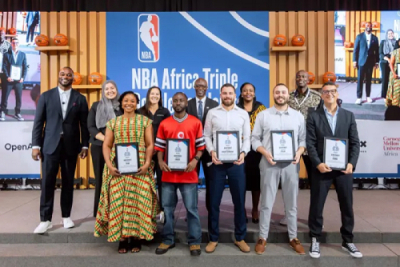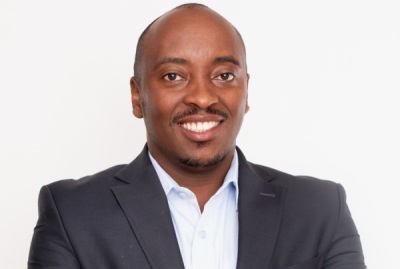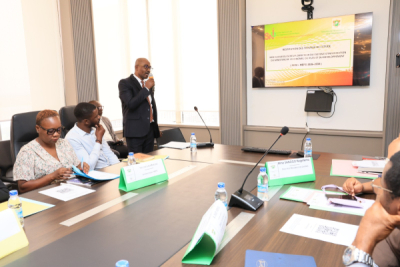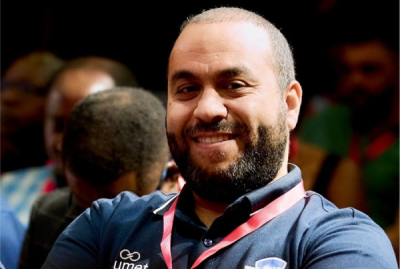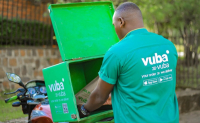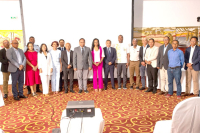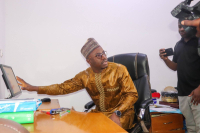- Orange Maroc inaugurated Morocco’s first open-access cable landing station in Nador to host the Medusa subsea cable.
- The Medusa cable spans more than 8,700 kilometers and links 19 landing points between Europe and North Africa.
- Orange Maroc plans more than 100 billion dirhams ($10.9 billion) in infrastructure investments over 25 years.
Orange Maroc announced on Tuesday, December 16, the inauguration in Nador of Morocco’s first open-access cable landing station. The strategic infrastructure will host the Medusa subsea cable. The cable extends over more than 8,700 kilometers and connects 19 landing points between Europe and North Africa. The system will strengthen Morocco’s international connectivity and support its ambition to become a regional digital hub.
“This is an infrastructure that Orange Maroc teams designed and delivered through local expertise, with active participation from Orange Group experts. It will allow Morocco to strengthen its digital sovereignty and support the digital development of the Moroccan economy,” said Mohamed Benali, Chief Technology & Information Officer of Orange Maroc.
The Medusa project targets data transmission capacity of up to 20 terabits per second per fiber pair through next-generation optical fiber technology. The cable connects Nador directly to Marseille and to other strategic points in the Mediterranean. This configuration will strengthen the resilience of digital exchanges between North Africa and Europe while diversifying connectivity routes. The landing station built by Orange Maroc covers 3,500 square meters and includes IT capacity designed to host advanced digital services.
A project aligned with a national and regional strategy
These developments align with Orange Maroc’s long-term strategy. The company plans more than 100 billion dirhams in investments over 25 years to develop national digital infrastructure. The strategy supports 5G deployment, artificial intelligence solutions, and digital sovereignty initiatives through the Orange Tech data center and cloud partnerships.
At a broader level, these initiatives also align with Morocco’s digital transformation ambitions. The country aims to build a high-performance, sustainable, and competitive digital ecosystem. This ecosystem will support national economic growth while integrating social and environmental commitments, including a target of 100% renewable energy use by 2040.
Economic and technological impacts
From an economic perspective, the arrival of the Medusa cable could reshape Morocco’s digital landscape. Improved international connectivity will attract new technology investments. The infrastructure will support the expansion of digital services and reduce bandwidth costs for businesses and users. The cable will also provide strategic redundancy amid rising data flows and growing demand driven by 5G, cloud computing, and artificial intelligence.
This article was initially published in French by Samira Njoya
Adapted in English by Ange Jason Quenum
- Gabon will officially launch onboard Internet service on passenger trains on December 23.
- The project will rely on OneWeb low-Earth-orbit satellite Internet operated by Eutelsat.
- Authorities aim to raise annual passenger traffic on the Transgabonais line to 330,000 by 2027.
The Gabonese government announced that it will officially launch onboard Internet service on passenger trains on December 23. The launch event will include a presentation of the solution and a live connectivity test onboard a train. Authorities and project partners will attend the demonstration.
The government announced the project on Monday, December 15. The Ministry of the Digital Economy, Digitalization and Innovation leads the initiative alongside the Ministry of Transport, Merchant Marine and Logistics. The project also involves the Transgabonais Railway Operating Company (SETRAG) and a private telecommunications operator. The operator will deploy OneWeb low-Earth-orbit satellite Internet from France’s Eutelsat group.
“In a first phase, onboard Internet access will allow exclusively the use of the WhatsApp application. The next stages of the project will enable a gradual expansion of services, depending on technical performance and observed quality of service,” the Ministry of the Digital Economy, Digitalization and Innovation said.
According to the ministry, the project aims to improve passenger comfort and user experience through the gradual integration of digital services into rail transport. The initiative aligns with Gabon’s broader digital transformation ambitions. Libreville seeks to position digital technology as a central pillar of socioeconomic development and to reduce dependence on extractive resources. The government adopted a legal framework in September to regulate and accelerate the digital transformation of public administration.
This improvement in customer experience comes as Gabonese authorities seek to increase traffic on the Transgabonais railway. The government aims to raise annual passenger numbers to 330,000 by 2027, compared with 260,000 passengers in 2022, representing growth of more than 26.9%. The initiative ranks among the transition government’s priority actions for the 2024–2026 period.
This article was initially published in French by Isaac K. Kassouwi
Adapted in English by Ange Jason Quenum
Five African startups have been named winners of the second NBA Africa Triple-Double Accelerator, an initiative supporting innovation in the sports and creative industries. Morocco’s Reborn, Egypt’s Fitclan and Athlon Technology, and Nigeria’s Atsur and Songdis will share financial awards, 12 months of mentorship at Carnegie Mellon University Africa, and technology credits to accelerate their growth.
- Joseph Wanjau founded Africa Cloud Space in 2015 to deliver SaaS and AI tools to African organizations.
- Africa Cloud Space targets schools, businesses, associations, and hospitals with ready-to-use digital management platforms.
- The company operates multiple products, including Cloud School, Ikomali, Majicloud, and Shiriki 365.
Joseph Wanjau is a Kenyan computer scientist and entrepreneur. He founded and currently leads Africa Cloud Space as chief executive officer. The company specializes in software-as-a-service solutions and artificial intelligence tools designed for schools and associations in Africa.
Africa Cloud Space launched operations in 2015. The company develops ready-to-use digital solutions that simplify and automate organizational management. It serves schools, businesses, associations, hospitals, and any institution that requires efficient tools for communication, activity tracking, and internal organization.
Among its products, Cloud School targets educational institutions seeking to modernize and centralize operations. The platform enables schools to manage all academic and administrative activities from a single digital space. The system allows access from all device types, which eases the workload of administrators and teaching staff.
In addition, Africa Cloud Space developed Ikomali as a multichannel point-of-sale solution for business-to-consumer companies. The platform enables merchants and retailers to track sales and in-store operations. It also structures customer relationship management.
The company also offers Majicloud as a knowledge management system. The platform centralizes information related to organization members. Meanwhile, Shiriki 365 automates all member-management operations. The solution primarily targets associations, clubs, and community-based organizations.
Alongside his entrepreneurial activities, Joseph Wanjau works as an information and communication technology consultant. He advises the Institute for Environmental Law and Governance in Kenya. He graduated from Jomo Kenyatta University of Agriculture and Technology. He earned a bachelor’s degree in computer science in 2013. Between 2013 and 2014, he worked as a software engineer at Craft Silicon, a Kenyan software development company.
This article was initially published in French by Melchior Koba
Adapted in English by Ange Jason Quenum
- Côte d’Ivoire’s Economy Ministry adopted a 2026–2030 IT master plan to modernize public administration systems.
- The plan allocates CFA10.156 billion ($18 million) across 44 projects and six programs.
- The strategy aligns with a broader national digital push backed by a 37% budget increase for digital transition in 2026.
The Ministry of Economy, Planning and Development adopted the 2026–2030 Information System Master Plan. The strategic framework aims to modernize digital tools, strengthen data security, and optimize public service management. Officials presented the document during an official ceremony in Abidjan.
“The Master Plan now constitutes a strategic tool to strengthen digital governance and improve public action efficiency. This presentation, which brought together around forty participants, opens the way for the implementation of planned actions to provide the Ministry with a more modern, secure, and high-performing digital environment,” said Yéo Nahoua, Chief of Staff to Economy Minister Kaba Nialé.
The National Information Technology Development Company conducted an in-depth diagnostic review to support the update. The assessment identified structural gaps, including weak IT governance, multiple non-interconnected platforms, aging infrastructure, and insufficient security mechanisms.
To address these challenges, the plan relies on four key orientations. The strategy targets IT function professionalization, integrated network deployment, rollout of shared and secure applications, and modernization of technical infrastructure. The plan includes six programs and 44 concrete projects. The framework allocates a total budget of CFA10.156 billion, equivalent to about $18 million.
The initiative aligns with national priorities that position digital technology as a development driver. For 2026, the Ministry of Digital Transition and Digitalization secured a budget exceeding CFA83.2 billion. The allocation represents an increase of about 37% compared with 2025. The funding aims to improve digital performance and nationwide connectivity access.
These allocations add to prior investments that delivered tangible results in 2024. Authorities deployed more than 33,000 kilometers of fiber-optic infrastructure. The government launched digital administrative service platforms. The state expanded 4G coverage across multiple rural areas.
The implementation of the new master plan should support more structured digital governance and stronger system interconnection. The framework should also accelerate public service digitalization. The reforms should reduce processing costs and timelines. The upgrades should strengthen infrastructure resilience against cyber threats.
This article was initially published in French by Samira Njoya
Adapted in English by Ange Jason Quenum
- Hazem Afify founded Sumet in 2021 to modernize FMCG supply chains for African retailers.
- Sumet targets local and informal markets that traditional distribution networks serve inefficiently.
- The platform enables rapid deliveries, sometimes within 24 hours in major urban areas.
Hazem Afify is an Egyptian-born entrepreneur based in Dar es Salaam, Tanzania. He founded and currently leads Sumet as chief executive officer. The technology company redesigns fast-moving consumer goods supply chains for neighborhood retail stores.
Sumet launched operations in 2021. The company positions itself as a dedicated platform for fast-moving consumer goods. The platform aims to facilitate market entry and brand growth across Africa. The company focuses on local and often informal markets, where traditional distribution networks struggle to serve small retailers efficiently.
The platform allows merchants to order a wide range of branded products with a few clicks. The system provides fast delivery, sometimes within 24 hours in selected urban areas. This model reduces travel time, lowers logistics costs, and limits stock-out risks.
For brands and distributors, Sumet provides detailed visibility into product performance at individual retail outlets. The platform enables order tracking and merchandise flow monitoring. These features allow manufacturers to optimize delivery planning, adjust field presence, and better understand retailers’ operational needs.
Alongside Sumet, Hazem Afify co-founded and leads Global Business as chief executive officer. The export, import, and distribution company operates from Turkey. The company launched in 2015. It focuses primarily on fast-moving consumer goods and cosmetics. The company maintains branches in Tanzania, including Dar es Salaam and Zanzibar.
Hazem Afify graduated from Cairo University in Egypt. He earned a bachelor’s degree in electronic and communications engineering in 2007. He began his professional career in 2008 at Mentor Graphics. The electronic design automation company employed him as a technical marketing engineer and later as an integrated circuit design consultant until 2015.
This article was initially published in French by Melchior Koba
Adapted in English by Ange Jason Quenum
- Vuba Vuba launched in 2020 to fill the gap left by Jumia Food’s exit from Rwanda in 2019.
- The app connects users to restaurants, supermarkets, and local merchants with deliveries in under an hour.
- The platform has surpassed 100,000 downloads on Android and relies on motorcycle-based local logistics.
Vuba Vuba is a mobile application developed by a Rwandan startup. Albert Munyabugingo launched the platform in 2020. The application connects users to a wide range of restaurants, supermarkets, and merchants. The service offers fast deliveries, often in less than one hour.
The application operates on iOS and Android platforms. Google Play Store data show more than 100,000 downloads. The company relies on a strong local logistics network. The platform uses motorcycle couriers to distribute orders efficiently.
Beyond delivery services, Vuba Vuba creates economic opportunities for local stakeholders. The platform allows food outlets and small retailers to digitize sales channels. The solution helps merchants expand customer reach and increase order volumes without heavy investment in proprietary digital infrastructure.
The application integrates a tracking system that alerts customers when couriers collect orders. The system allows users to follow deliveries in real time and receive notifications when couriers approach. “Our team works diligently to ensure fast processing and delivery of orders. The estimated delivery time depends on your location. In general, you can expect your order to arrive within 45 minutes,” the startup said.
As e-commerce and digital services continue to expand across East Africa, Vuba Vuba demonstrates how locally adapted solutions can drive digital inclusion. The model supports entrepreneurship and responds to rising demand for efficient delivery services.
This article was initially published in French by Adoni Conrad Quenum
Adapted in English by Ange Jason Quenum
- Madagascar launched the process to draft its national cybersecurity strategy.
- Authorities aim to finalize the framework within three months.
- The strategy will update a cybersecurity law adopted in 2014.
Madagascar continues to structure its digital ecosystem after creating a national cybersecurity body in 2023. Authorities now focus on establishing a legal and strategic framework to protect systems and data amid rising cybercrime.
The Malagasy government formally launched the process to develop its national cybersecurity strategy last week following a kickoff workshop held in Antananarivo.
The event brought together public authorities, digital experts and technical partners. Officials presented the initiative as a key step toward securing the country’s digital space as digital usage expands across public administration, financial services and the broader economy.
“The stakeholders committed to finalizing this national cybersecurity strategy within three months,” said Eric Nirina Rakotomaniraka, head of the digital incident response team at the Computer Incident Response Team (CIRT).
He said the strategy will address key areas, including online child protection, combating gender-based cyber violence, digital justice, and international cooperation in cases of cyberattacks or data breaches.
On an operational level, the future strategy aims to structure cyber incident prevention, detection and response.
The document plans to strengthen national digital forensic capabilities, improve coordination between public institutions and private-sector actors, and support local skills development. Authorities also intend to use the strategy as a foundation to update the regulatory framework, as the 2014 cybersecurity law increasingly fails to reflect evolving technologies and threats.
The initiative comes as digital usage expands but information systems remain fragile. According to the Digital 2025 report, Madagascar counted approximately 6.6 million internet users in 2025, representing just over 20% of the population, a level that remains modest but continues to rise steadily.
At the same time, Madagascar faces limited cybersecurity capacity. The International Telecommunication Union’s Global Cybersecurity Index 2024 ranks the country in Tier 4 out of five.
This classification reflects significant gaps, particularly in technical infrastructure, institutional coordination, skills development and international cooperation.
Authorities expect the national cybersecurity strategy to strengthen protection of digital infrastructure, increase citizen and investor confidence in digital services, and support Madagascar’s broader digital transformation.
By laying the foundations for stronger digital sovereignty, the government aims to create a safer environment for innovation, online public services and the country’s integration into regional and global digital ecosystems.
This article was initially published in French by Samira Njoya
Adapted in English by Ange Jason Quenum
- Kevin Kissi founded Zof AI to reduce software incidents by up to 95%
- The platform uses AI agents to verify every code change before production
- Zof AI targets faster software delivery with up to tenfold productivity gains
Artificial intelligence continues to transform software engineering practices. In this context, new approaches increasingly focus on anticipating failures rather than reacting to incidents after deployment.
Ghanaian engineer and entrepreneur Kevin Kissi, who is based in the United States, has repositioned incident anticipation at the core of software development. He founded and currently leads Zof AI as Chief Executive Officer.
Founded in 2024, Zof AI provides a platform designed to help software teams deliver products faster while sharply reducing user-facing outages and incidents.
The platform deploys intelligent agents that understand the overall behavior of software systems and verify each change before production release. Zof AI aims to help teams deliver software up to ten times faster while cutting customer-impacting incidents by 95%.
Zof AI begins by building a detailed representation of an application’s architecture. The platform integrates codebases, services and interfaces into a unified system view.
This global model enables AI agents to identify system vulnerabilities and assess the potential impact of changes introduced by engineering teams.
Zof AI integrates directly with existing software development and deployment tools without requiring complex configuration.
Once connected, the solution becomes operational within a few days and analyzes changes before publication. The platform primarily targets engineering leadership, quality managers, and reliability and operations teams.
Kevin Kissi launched his first company in 2015. The startup, Auragh AI, developed a machine learning platform designed to improve human interaction with the physical world.
In 2016, Kissi founded Kissi & Co., a technology consulting firm. He led the company until 2024.
Kissi holds degrees in mechanical engineering and economics, as well as mathematics with a minor in computer science. He earned these qualifications at North Dakota State University in the United States.
In 2014, Kissi worked as a support engineer at Microsoft. Between 2016 and 2021, he held software engineering roles at Blueprint IT Solutions, Wanzek Construction, Boston Scientific, and U.S. Bank.
From 2021 to 2023, he served as Principal Software Engineering Manager at Microsoft.
This article was initially published in French by Melchior Koba
Adapted in English by Ange Jason Quenum
- Digital justice platforms generated more than CFA337 million ($603,700) for the state budget
- Online criminal records accounted for over 90% of applications and revenues
- Authorities launched new digital justice platforms in December to expand reforms
Burkina Faso continues to accelerate the digitalisation of public services to simplify administrative procedures for citizens. Authorities also aim to strengthen state revenues through this transformation.
The gradual digitisation of judicial services has started to generate tangible results. Over two years of operation, online platforms dedicated to nationality certificates and digital criminal records mobilised more than CFA337 million, equivalent to about $603,700, for the state budget.
The Ministry of Justice highlighted these results on Friday, December 12, during a site visit organised in Ouagadougou for the media. The initiative aimed to demonstrate the concrete impact of digital tools designed to modernise judicial document delivery and improve access to public services.
Authorities framed the reform within a national context marked by security constraints and significant geographic disparities.
As of December 11, 2025, the online nationality certificate platform recorded nearly 49,000 applications, generating just over CFA24 million in revenue.
However, the central digital criminal record platform captured most of the activity. The system processed more than 418,000 applications and generated over CFA312 million in revenue.
These volumes reflect rapid user adoption driven by simplified procedures and shorter processing times.
Beyond revenue generation, the platforms address a critical accessibility challenge. The systems allow citizens, including those living in insecure areas or remote regions, to obtain official documents remotely.
The platforms secure issued documents with QR codes, which strengthen authenticity and reduce fraud risks historically associated with paper-based procedures.
The digitalisation process continues to face operational challenges. Authorities still record application rejections, mainly due to non-compliant documents, incomplete files, or attempted falsification.
Technical officials say these issues highlight the need to strengthen user support and public awareness of digital procedure requirements. However, teams confirm that compliant applications usually receive processing times of less than 48 business hours.
Building on these results, the Ministry of Justice continues to expand its digital service offering.
Authorities officially launched several new platforms on December 15 in Ouagadougou, including Justice pénale en ligne, e-Permis de communiquer, and e-RCCM (Online Trade and Movable Credit Register). These launches mark a new phase in the modernisation of Burkina Faso’s judicial and administrative services.
This article was initially published in French by Samira Njoya
Adapted in English by Ange Jason Quenum
More...
-
Marie Chantal Kouacou founded African Women Innovation 3.0 to train African women in AI, blockchain and Web3
-
The platform targets digital skills gaps that limit female entrepreneurship and leadership
-
AWI 3.0 combines online training, entrepreneurship programs and professional networking
Rapid digital transformation continues to reshape entrepreneurship and leadership models across Africa. However, unequal access to digital tools and skills continues to widen gender gaps. In this context, targeted initiatives increasingly focus on women’s digital empowerment.
Ivorian finance expert and entrepreneur Marie Chantal Kouacou promotes blockchain and Web3 adoption across Africa. She founded and currently leads African Women Innovation 3.0 (AWI 3.0) as Chief Executive Officer.
Founded in 2023, AWI 3.0 supports African women in acquiring high-demand technology skills. The organization delivers training in artificial intelligence, blockchain, Web3, digital productivity and innovation.
AWI 3.0 operates an online learning platform that centralizes all training modules. The initiative aims to equip women with the skills required to achieve autonomy, professional credibility and visibility in the digital economy.
AWI 3.0 structures its programs around several complementary pillars. The organization offers foundational training, entrepreneurship and leadership programs, personal branding development, networking, and mastery of digital tools.
Each training path focuses on practical competencies, including team management, strategic positioning, professional relationship building, and leveraging digital tools as growth drivers.
Alongside her role at AWI 3.0, Marie Chantal Kouacou serves as a business partner at GUILD4AI, a global artificial intelligence network that brings together innovative companies, speakers, experts and educators.
She also acts as Chief Administrative and Financial Officer of OIA Anacarde Côte d’Ivoire, a platform that federates stakeholders across the country’s cashew value chain.
Kouacou holds a degree in accounting and finance from the Institut National Polytechnique Félix Houphouët-Boigny in Yamoussoukro. She also graduated from TECH Global University, a digital university, where she earned a master’s degree in business intelligence in 2024.
Kouacou began her professional career in 2003 at Société Générale, where she worked as an administrative assistant.
In 2004, she joined Côte d’Ivoire’s National Center for Agronomic Research. She successively held positions as accountant, head of administrative and financial services, and head of management control, before leaving the institution in 2023.
This article was initially published in French by Melchior Koba
Adapted in English by Ange Jason Quenum
African social entrepreneurs can now apply for the Ashoka Venture & Fellowship Program, which leads to Ashoka Fellow status. Selected participants receive a needs-based stipend, tailored support, pro bono services and access to a global network of peers, designed to help scale their solutions and increase their systemic impact.
Indian unified commerce platform Fynd is expanding into South Africa through a partnership with luxury retailer Surtee Group, which operates nearly 100 boutiques. The partnership aims to link physical stores and online sales through an integrated technology stack, including real-time inventory management, in-store ordering and shipping, as e-commerce continues to grow rapidly in the country.
Egyptian startup iVoiceUp, which provides AI-powered tools for managing ethics alerts and compliance cases, has raised fresh capital in a funding round led by venture capital firm A15. The company, which helps organisations detect fraud, harassment and other forms of misconduct at an early stage, said it now serves more than one million users and plans to expand further across Egypt, Saudi Arabia and the United Arab Emirates.




